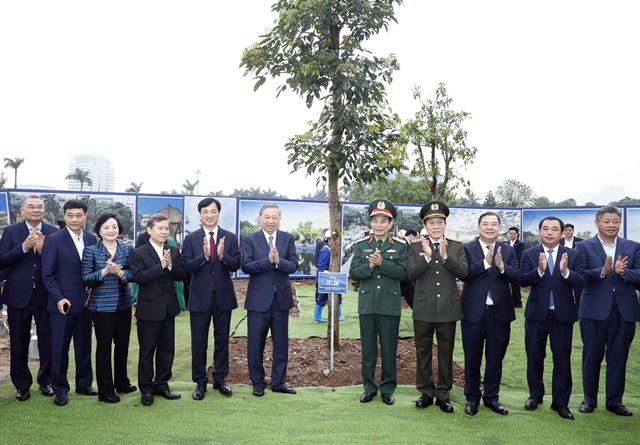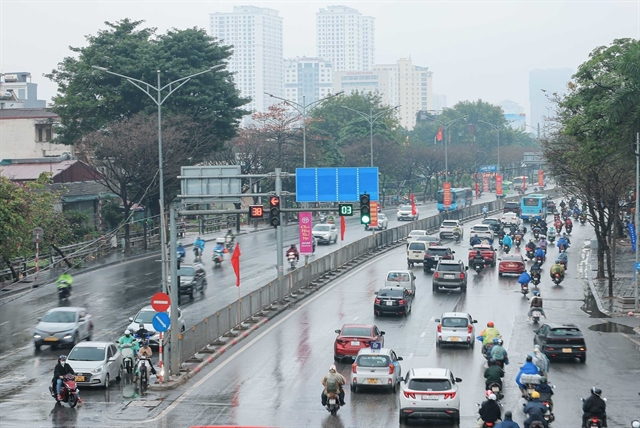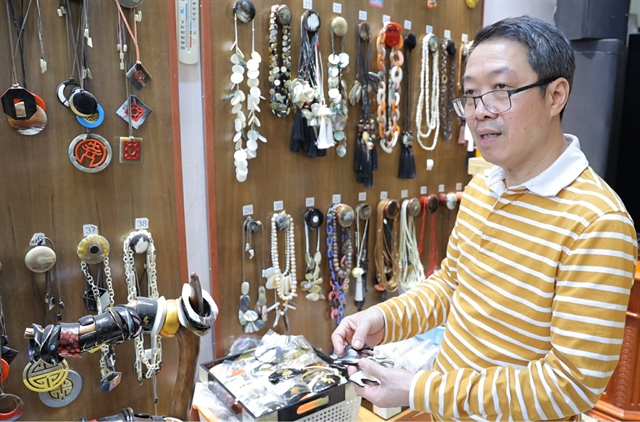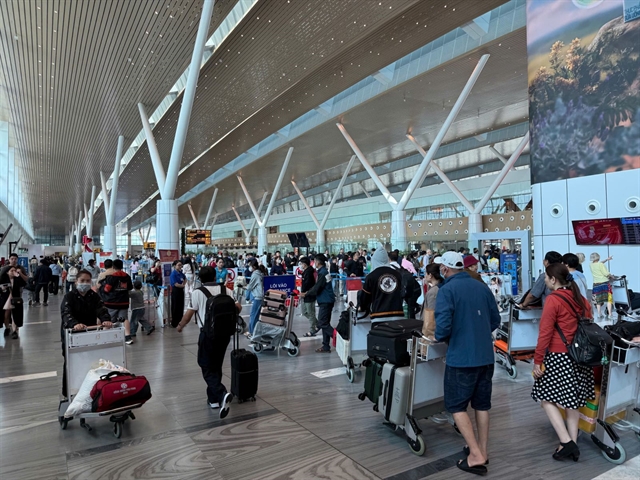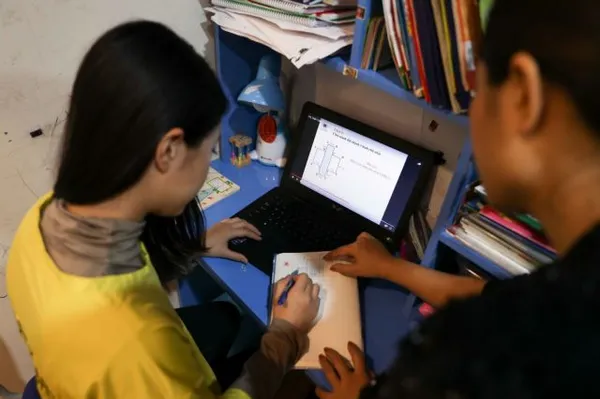 Society
Society

 |
| Minister of Information and Communications Nguyễn Mạnh Hùng answers NA deputies' questions on Tuesday. — VNA/VNS Photos |
HÀ NỘI — Việt Nam is finalising its legal framework to handle cyberspace violations and impose sanctions on, not only individuals, but also social network platforms which break the laws, said Minister of Information and Communications Nguyễn Mạnh Hùng on Tuesday.
Hùng was the third head of sector who took a National Assembly (NA)’s question and answer session, with a focus on digital journalism, advertising and infrastructure.
He said information management on social media was a global challenge. Previously, regulations had been in place to handle individuals using social networks to spread false information, but recently there had been a decree to handle social networking platforms when they violate Vietnamese law.
Responding to NA deputies’ questions on solutions to curb fake news, he emphasised the responsibility of social network platforms in autonomously managing content, ensuring accurate and healthy information.
"They have their own space, their own hundreds of millions to billions of subscribers, so they must be responsible for scanning, detecting and automatically removing toxic information," the minister said.
He also highlighted the need to step up communication and education to help people strengthen their ‘resistance’ in the digital space, improve their ability to recognise and avoid fake news.
“Everyone can contact the national and local anti-fake news centres to report and request help upon reading fake news,” he said.
NA deputy Trần Thị Thanh Lam, a permanent member of the NA’s Committee for Social Affairs, fielded a question over key solutions on fake advertising on social network platforms.
Hùng said the ministry had “tried its best” to curb fake advertising and “progress has been made”.
In the past, the platforms removed only one to two out of 10 pieces of content asked to be removed by the ministry. But now, they had followed the management agencies’ order by removing over 90 per cent of the violating content, he said.
Platforms must disable accounts and pages that keep violating the laws, he said. However, he acknowledged that this was a complex and ever-changing issue, requiring management agencies to constantly update and adjust legal regulations to adapt to the new situation.
“Building a complete and effective legal framework for cyberspace is an urgent task and requires the efforts of the whole society,” the minister said.
Developing social networking platforms
Chairwoman of the Quảng Bình Women's Union Nguyễn Minh Tâm said that Minister Hùng had once stated that without a digital ecosystem and Vietnamese social networks, there would be no negotiating power with Google and Facebook. This was a major and the right strategy to ensure independence and national cybersecurity sovereignty, she said.
“When will this strategy become a reality so that Vietnamese social networks can develop?” she asked.
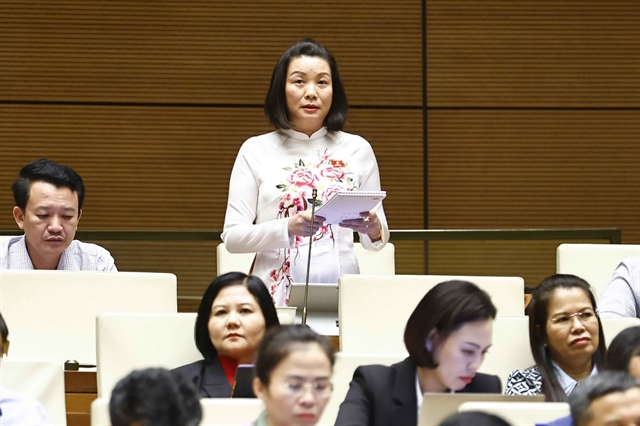 |
| NA deputy Nguyễn Minh Tâm |
Minister Hùng said social networks had two sides. They had positive impacts, such as facilitating people to communicate and do business, but social networks also posed many risks. However, he also admitted that banning cross-border platforms was not feasible. Instead, the ministry had encouraged the development of domestic social networks to create healthy competition and diversify choices for users.
"The ministry has licensed nearly 1,000 social network platforms in Việt Nam, mainly focusing on niche markets, while we have only about 20 large social networks.”
The total number of Vietnamese social network users is now equivalent to, or even surpasses those of large platforms such as Facebook, YouTube and TikTok, according to the minister. Thirty-eight other national digital platforms are also contributing to Việt Nam’s digital ecosystem.
This shows the huge development potential of the domestic social network market. To make the most of this opportunity, Việt Nam needs to promote technology mastery and build indigenous digital platforms.
Regarding fake advertisement on cross-border e-commerce platforms, he said there was no other way but all sectors and levels must "manage their own cyberspace".
"If cross-border platforms, even those without a representative in Việt Nam, do not comply with the laws, we have enough capacity to stop all of their activities," Minister Hùng said.
Role of journalism
Other deputies raised worries over citizen journalism on social network which might replace mainstream journalism.
Hùng said if the press followed social networks, it would be left behind. "If mainstream journalism wants to maintain its position, it must have a different approach, return to core values of authenticity, accuracy, objectivity, accountability and professional ethics while taking advantage of digital technology, regaining the position, increasing the number of readers and attracting more advertisements," he said.
The minister emphasised that the press needed to improve the quality of content so that press information could lead public opinion on social networks. This was the orientation on the role of revolutionary journalism. The press needed to make use of social network technology and consider social networks as a distribution tool.
"Press agencies need to appear on social network platforms to disseminate information better," he said.
Despite their desire for greater autonomy and flexibility, traditional press agencies were facing major challenges as online advertising revenue was being taken over by social networks. The number of press agencies was increasing (800) while revenue was on the decline.
Since last year, agencies had increased their budgets for the press. The ministry would have a section on press economics in the Press Law to be revised, allowing large press agencies to do business in content and the media sector, he said.
According to the plan for the press, the State looks to focus investment in six key news agencies to make them into media forces and create special conditions and mechanisms for them.
“I hope the NA will support the Government in building special mechanisms for key press agencies," he said. VNS

